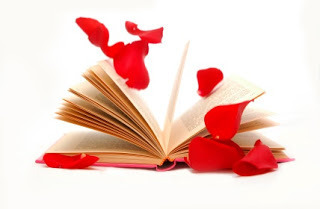An Open Letter to Those Who Ask: “Why Write/Read Romance Novels?”

Starting with the uproar in February over Paypal’s arrogance in deciding what I could use my Paypal card to purchase and read, and those who presumed to talk down to me when I spoke out against my debit card’s right to censor me, through the discussions taking place over the Fifty Shades of Gray phenomenon, I’ve been asked one question countless times. “Why write romance?” My friends and family say things I’m sure they don’t mean to hurt, like, “I don’t read those kinds of books. Why don’t you write real novels?” This article in the Huffington Post finally prodded me to answer publicly.
To answer the question, I’ll first need to explain why I read romances.
In addition to the catastrophic events that resulted in my husband’s becoming a quadriplegic, discussed elsewhere on this blog, I lost the core of my family in a seven year span. I buried my husband, both grandparents, the odd cousin or two, my father and finally my mother. In short, almost everyone I cared about except my children died, and a close friend committed suicide. Another close friend’s seventeen-year-old son killed himself and trying to share the weight of her grief was my final straw. I withdrew from socializing; spending my time instead trying to process what seems to me now to be a form of PTSD.
Eventually I grew tired of trying to answer the unanswerable, and reached for a book. It wasn’t a romance novel, but in chewing through my TBR list, I did find a romance novel in the pile. I read it, I read it again and I bought the next one. In a two-year span, I read well over three thousand romance and erotica stories. Yes, you did read that right, over three thousand romance or erotica titles, one right after the other, as fast as I could read them.
Why? Because in those pages, I found hope and joy and the simple delight that a sexual connection can bring. The gut-wrenching moment of break-up and the tummy-turning instant of realizing you’re in love—all present and accounted for. Though those emotions were a damn long way from my reality at that time, I still felt them, and through feeling them again, was able to reconnect. I discovered that today’s romances had little in common with the ones my mother let me read at twelve and thirteen, those by Rosemary Rogers and Kathleen Woodiwiss.
Not that I’m knocking those two authors, nor their work. The article itself in the Huffington Post is merely the tip of the iceberg. Like any online article, the real meat is in the comments. Those works are being brutalized by people—like the author of the article-- who don’t understand their appeal. Ah, hell, let’s be fair, romance novels in general got bashed, as did the women—and men—who read and write them.
So here’s my official response: Why do you put down what you don’t understand? I’m fed up with the implication that reading romances fries brain cells and that writing them is less than I could aspire to. I watch baseball too, and although I enjoy the hell out of it, I never left a game feeling smarter. But I will submit that to denigrate the romance/erotica genre has a lot in common with those who say watching baseball is like watching paint dry. You clearly don’t understand what’s taking place.
The sexuality of a woman is complex. For men, not so much. Men are visually stimulated. If you want to turn me on, you’ll need to do more than drop your shorts. I’ll need to know why you’re into me, or at a minimum, I’ll be wondering why the hell I’m into you. A romance novel will help answer those questions. Behind every good romance story is an insight into the sexuality of a woman. We need those insights, we crave them, because as we go through life, we change. Our wants in the bedroom change, and the divorce rate can surely attest that our wants in a mate change. Yet we don’t always know why. Each well-written romance has a piece of the answer.
We cannot trust the mainstream media on the topic. Often, we cannot even trust our closest friends. We must go to the romance/erotica genre to find the validation for our fantasies. To see that we’re not strange or weird, but that there are other women in the world who feel and think the things we’re supposed to be ashamed to feel and think. Or to want from a man.
I’ve come to view the romance and erotica genres as collective wisdom on what it means to be a sexually-functioning female.
Read that again, slowly. Yes, I’m stating that romances help us process what it means to be female, what’s happening in our heads, and in our bodies and in society, as it relates to us. So if you’re waiting for me to apologize for reading romances, much less for writing them, I recommend you get real comfy, because you’re gonna have one hell of a wait.
Does that mean I feel every romance I’ve ever read to be stellar in some way? No. In fact, it was the bad ones that prodded me to take the plunge and write one myself. I learned a lot in doing so. The first thing I learned is that it’s damn hard to write an elegant sex scene. All those hands and legs and aching members must be accounted for. I’ll bet you my favorite pair of boots right now a murder scene is more easily written. But in reading the bad ones, I decided what kind of romances I wanted to write. This is my promise to anyone who chooses to read a romance or erotica story I write:
I will respect the concept of love, even when pursuing the purely erotic.
I will give you fully-drawn heroines and heroes with motivations you can respect.
I will give you plots that are believable, even if/when I venture into the realm of the paranormal.
In short, I’ll never imply in any way that you’re stupid for reading a story I write. So please do me the courtesy of not asking me why I waste my time writing them.
And here is the link to my reply to the article, buried under the avalanche of condemnation and defensive responses.
Nothing's more fun than a rollicking debate, so step in, grab a seat and speak up; now's your chance. Why do YOU write erotica/romance, or read it?

Published on July 14, 2012 01:03
No comments have been added yet.



